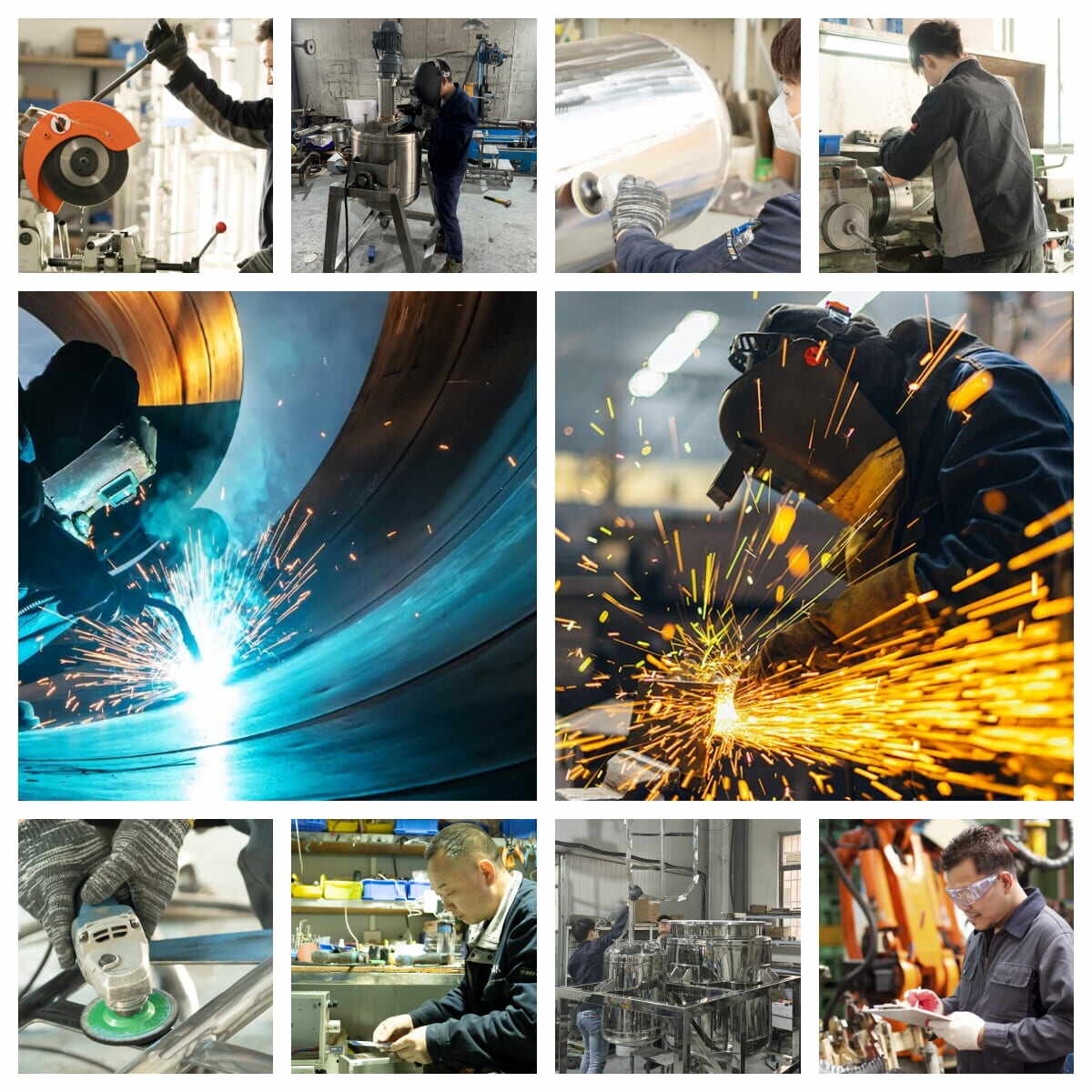Nuestro taller de producción está equipado con instalaciones de última generación diseñadas para garantizar los más altos estándares de calidad para equipos de acero inoxidable. El proceso de producción de equipos de acero inoxidable incluye varias etapas clave, cada una de las cuales es crítica.

Nuestro taller de producción está equipado con instalaciones de última generación diseñadas para garantizar los más altos estándares de calidad para equipos de acero inoxidable. El proceso de producción de equipos de acero inoxidable incluye varios pasos clave, cada uno de los cuales es fundamental para garantizar la calidad y el rendimiento del producto final. A continuación se muestra un proceso típico de producción de equipos de acero inoxidable:
1. el derecho de voto. Preparación de materias primas
En primer lugar, elija materias primas de acero inoxidable de alta calidad adecuadas. Los tipos de acero inoxidable más utilizados son el 304 y el 316, y el material adecuado se selecciona de acuerdo con el uso específico del equipo.
2. Corte
Utilice equipos de corte de alta precisión, como cortador láser o cortador de agua, para cortar la hoja de acero inoxidable en la forma y el tamaño requeridos. La tecnología de corte por chorro de agua utiliza agua a alta presión y abrasivos para cortar el acero inoxidable con precisión, asegurando bordes limpios y mínimo desperdicio de material.
3. ¿Qué es esto? Formación
La hoja de acero inoxidable cortada se forma en las partes requeridas mediante flexión, estampado y otros procesos de formación. El proceso de moldeo requiere el uso de máquinas de flexión y equipos de estampado profesionales para garantizar que el tamaño y la forma de las piezas cumplan con los requisitos de diseño.
4. ¿Qué es? Saldado
Las piezas moldeadas se ensamblan mediante soldadura. Durante el proceso de soldadura, asegúrese de que la costura de soldadura sea firme, uniforme y libre de porosidad y grietas.
5. ¿Qué es eso? Polish
Después de que se haya terminado la soldadura, el equipo se pulió. El pulido no sólo mejora el aspecto del equipo, sino que también aumenta su resistencia a la corrosión. Utilice diferentes gránulos de compuestos de pulido y herramientas de pulido para mejorar gradualmente el acabado de la superficie.
6. ¿Qué es? Inspección
Después de que se haya terminado el pulido, el equipo se inspecciona a fondo. La inspección incluye medidas de dimensiones, calidad de soldadura, acabado de la superficie, etc. Asegurar que todos los indicadores del equipo cumplen los requisitos de diseño y las normas de calidad.
- ¿Qué es? Limpieza
Después de la inspección, se limpiará el equipo cualificado para eliminar el aceite, el polvo y los residuos de pulido de la superficie. El proceso de limpieza utiliza agentes profesionales de limpieza de acero inoxidable para garantizar que el equipo sea higiénico y limpio.
8. ¿Qué es eso? El conjunto
Para el equipo que se va a ensamblar, las piezas se ensamblarán de acuerdo con los dibujos de diseño. Durante el proceso de montaje, debe prestarse atención a la firmeza y al sellado de cada punto de conexión para garantizar la funcionalidad y la seguridad del equipo.
Si alguno de nuestros equipos llama tu atención, no dudes en ponerte en contacto para más información. Por favor, contáctenos en [email protected]. Nuestro equipo dedicado está aquí para ayudarte con cualquier consulta que tengas.